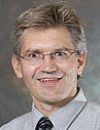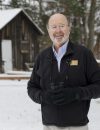UW In The News
-
The Pandemic Prom: Tuxedos, Corsages and Dancing at Home Alone
Prom, short for “promenade,” has its roots in debut balls and coming-of-age parties. By the post-World War II era, the dances were a fixture of teenage culture and considered a rite of passage, says William Reese, a professor of education and history at the University of Wisconsin-Madison.
-
Another Casualty of the Coronavirus: Summer Internships
“You pick up a lot of subtle clues about how to behave in that profession, how to communicate like an engineer, how to work in teams like a nurse,” said Matthew Hora, an education professor at the University of Wisconsin who has studied internships. “Students are going to be missing that.”
-
Dispute over South Dakota tribal checkpoints escalates after Gov. Kristi Noem seeks federal help
Tribal law expert Richard Monette, a law professor at the University of Wisconsin-Madison, said the Supreme Court’s line of cases have supported the concept of tribal sovereignty, but this issue could quickly unravel should Trump decide to get involved in favor of Noem and compel federal law enforcement to descend on the checkpoints.
-
NOAA sees busy hurricane season, as pandemic strains emergency services
The outlook for the 2020 Atlantic hurricane season also comes as researchers at NOAA and the University of Wisconsin-Madison identified a link between the growing intensity of tropical storms and human-driven climate change, mapping out the growing strength of hurricanes and typhoons over the past four decades.
-
Urban Wildlife Habits Change With Humans Staying At Home
To find out more about how wildlife is reacting to the enormous change in human habits, WPR’s Melissa Ingells talked to David Drake, a professor and wildlife specialist in the Department of Forest and Wildlife Ecology at the University of Wisconsin-Madison.
-
Wisconsin reopening decision boosts bars; many people still quarantine
Nasia Safdar, an infectious disease expert with the University of Wisconsin-Madison, said factors such as improved weather and the end of at-home schooling in some districts probably contributed to a general trend of increased movement.
-
What We Lose When We Hide Our Smiles Behind a Mask
According to Paula Niedenthal, a psychologist who heads up the Niedenthal Emotions Lab at the University of Wisconsin–Madison and has studied facial expression extensively, there are three types of smiles: those that express pleasure at a reward or surprise, like when you get to see your friends in person after a prolonged separation (soon, please); those that convey a desire to be friendly, or at least non-threatening, which she calls smiles of affiliation; and those that show dominance, like the one Dirty Harry gives when he asks a certain punk if he feels lucky.
-
Visualizing Science: How Color Determines What We See
“When people approach a visualization, they have expectations of how visual features will map onto concepts,” said Karen Schloss, a psychologist at the University of Wisconsin–Madison and the Wisconsin Institute for Discovery. Schloss and her team are working to tackle these implementation issues and understand trade-offs between deeply ingrained, communal familiarity and the next generation of color tools.
-
Global warming is making hurricanes worse, study finds
The study, by a group of researchers at the National Oceanic and Atmospheric Administration and the University of Wisconsin at Madison, builds on previous research that found a trend, though not a statistically robust one, toward stronger tropical cyclones.
-
Coronavirus vaccine trials have their first results — but their promise is still unclear
Still, the early data offer clues as to how coronavirus vaccines might generate a strong immune response. Scientists say that animal data will be crucial for understanding how coronavirus vaccines work, so that the most promising candidates can be quickly identified and later improved. “We might have vaccines in the clinic that are useful in people within 12 or 18 months,” says Dave O’Connor, a virologist at the University of Wisconsin-Madison. “But we’re going to need to improve on them to develop second- and third-generation vaccines.”
-
Climate Change Is Making Cyclones Stronger, Researchers Find
Climate change is making tropical cyclones more intense with stronger maximum sustained winds, according to a new study led by scientists at NOAA and the University of Wisconsin-Madison Cooperative Institute for Meteorological Satellite Studies (CIMSS), who analysed nearly 40 years of enhanced infrared satellite imagery.
-
In a World ‘So Upside Down,’ the Virus Is Taking a Toll on Young People’s Mental Health
“Not every kid can be online and have a confidential conversation about how things are going at home with parents in earshot,” said Seth Pollak, director of the Child Emotion Lab at the University of Wisconsin-Madison.
-
Global warming is making hurricanes worse, study finds
The study, by a group of researchers at the National Oceanic and Atmospheric Administration and the University of Wisconsin at Madison, builds on previous research that found a trend, though not a statistically robust one, toward stronger tropical cyclones
-
‘Immunity passports’ won’t reopen America
“There are a lot of other things to do to change the workplace” to make it safer, said Alta Charo, a bioethics expert at the University of Wisconsin Law School who has served on several national and state ethics advisory panels.
-
Wisconsin: Images of the Badger State
Students and visitors enjoy the sunset on the campus of University of Wisconsin–Madison, along Lake Mendota, in July 2018. #
-
Beware This COVID-19 Vaccine ‘Study’ From an 80s Teen Tech Titan and a Carnivorous Plant Smuggler
Dr. Ajay K. Sethi, an infectious disease epidemiologist and associate professor of population health sciences at the University of Wisconsin-Madison, cautioned that there is no evidence Gold and his co-investigators “used a scientific approach to test their hypothesis that ‘different exposure to vaccines between younger and older people may account for this different morbidity rate [in COVID-19].’”
But Dr. Jim Conway, a pediatric infectious disease specialist at the University of Wisconsin-Madison, said readers “need to be cautious when people are trying to draw associations that don’t have a lot of biological plausibility.”
-
How to Maintain Motivation in a Pandemic
Richard J. Davidson, professor of psychology and neuroscientist at the Center for Healthy Minds at the University of Wisconsin-Madison, has demonstrated that “when individuals engage in generous and altruistic behavior, they actually activate circuits in the brain that are key to fostering well-being.”
-
How To Eat For A Healthy Gut
For years, people with irritable bowel syndrome symptoms were told the issues were related to stress, it was in their heads or they needed to exercise more, said Melissa Phillips, a clinical nutritionist at the University of Wisconsin-Madison Health System’s Digestive Health Center.
-
How Venus flytraps evolved their taste for meat
That duplication freed up copies of genes once used in roots, leaves, and sensory systems to detect and digest prey. For example, carnivorous plants repurposed copies of genes that help roots absorb nutrients, to absorb the nutrients in digested prey. “That root genes are being expressed in the leaves of carnivores is absolutely fascinating,” says Kenneth Cameron, a botanist at the University of Wisconsin, Madison.
-
Study shows cats can easily spread coronavirus to each other – here’s what that means for cat owners
The research team, lead by Yoshihiro Kawaoka, professor of pathobiological sciences at the University of Wisconsin School of Veterinary Medicine, inoculated three cats with the virus, and then introduced three other uninfected cats to the group. In five days, the three previously uninfected cats had caught the virus.
-
As Some Places Reopen, Public Health Official Says Significant Risk Of Infection Remains
Dr. Patrick Remington, director of the University of Wisconsin-Madison Preventive Medicine Residency Program, said it’s a natural reaction to start testing the waters and evaluating risk after a period of intense measures.
-
Cats with no symptoms spread virus to other cats in lab test
He and colleagues at the University of Wisconsin School of Veterinary Medicine led the lab experiment and published results Wednesday in the New England Journal of Medicine. Federal grants paid for the work.
-
Anxiety, Hope, Trust And Slowing The Spread Of COVID-19 Conspiracy Theories
Ajay Sethi, a professor at the University of Wisconsin-Madison School of Medicine and Public Health and director of its Master of Public Health program, studies the spread of infectious diseases such as HIV and measles. He also studies the spread of public health conspiracies, which can quickly unravel the progress achieved by researchers.
-
What college seniors are losing in their last semester because of COVID-19
Robin Mwai just graduated from University of Wisconsin, Madison, and is trying to figure out that balance.
-
Cats can infect each other with coronavirus, study finds
In the study, led by researchers at University of Wisconsin-Madison and the University of Tokyo, three felines were inoculated with the virus. A day later, three other cats were housed with the infected felines in pairs, and all three also went on to test positive for Covid-19.
-
The pandemic and wild animals – Protecting great apes from covid-19
Late in 1990, when Paul Kagame was hiding on the Congolese side of the Virunga Mountains preparing to invade Rwanda, his army, the Rwandan Patriotic Front, were not the only formidable inhabitants of that densely forested volcanic range. The Virunga are also home to mountain gorillas. Soldiers are notoriously trigger-happy when it comes to wildlife, but Mr Kagame ordered his men not to shoot the apes. “They will be valuable one day,” he said.
(Tony Goldberg, virologist, School of Veterinary Medicine)
-
Cats Can Transmit the Coronavirus to Each Other, but They Probably Won’t Get Sick From It – The New York Times
Yoshihiro Kawaoka of the University of Wisconsin School of Veterinary Medicine and Peter Halfmann of the University of Wisconsin-Madison, along with other researchers from both the United States and Japan, conducted the study, in which three domestic cats were inoculated with the virus and three additional uninfected cats were put in cages, one with each of the inoculated cats.
-
Would airport coronavirus testing get people flying? Not alone, experts say
For diagnostic tests that are designed to detect current infections, the possibility of some false-negative tests could also allow infected travelers slipping through the cracks, Laura Albert, an industrial and systems engineering professor at the University of Wisconsin-Madison, told ABC News.
-
Fact check: The coronavirus pandemic isn’t slowing climate change
“This may sound small at first, but it is the largest drop since World War II, as emissions have generally increased year-over-year, even during recessions,” Ankur Desai, a professor of atmospheric sciences at the University of Wisconsin-Madison, told USA TODAY.
-
Opinion: The University of Wisconsin and other public universities are on the front lines of the battle against coronavirus
From Rebecca M. Blank is chancellor of the University of Wisconsin-Madison and chair of the Council of Presidents of the Association of Public and Land-grant Universities, a research, policy, and advocacy organization. Peter McPherson is president of APLU and former president of Michigan State University.
- Newer stories
- Page 58 of 140
- Older stories
Featured Experts
Noelle LoConte: Pancreatic Cancer Awareness Month
Pancreatic cancer is one of the most difficult cancers to prevent, diagnose or treat. Earlier this month, music legend Quincy… More
Kathleen Glass: Food safety
Food is an integral part of Thanksgiving. And who doesn't love leftovers? But after how long should you leave those… More
Cecelia Klingele: Body-worn cameras by police
Madison Police Chief Shon Barnes is requesting that the city fund widespread use of body cameras for officers in the… More
Jonathan Temte: The seasonal flu shot
Family medicine professor Jonathan Temte is available to discuss this year's updated seasonal flu shot and flu prevention and control. More
Stanley Temple: Fall phenology
The days have finally started getting cooler and we all know winter awaits. Stanley Temple, an expert on birds, wildlife, endangered… More
Alvin Thomas: Movember and Men's Health Month
You might see more facial hair this month as Movember goes into full effect, drawing awareness toward men's health. Alvin… More
Dominique Brossard: Vaccine hesitancy
With a new administration poised to take power in January, a change in policy regarding vaccines may also be on the way.… More







